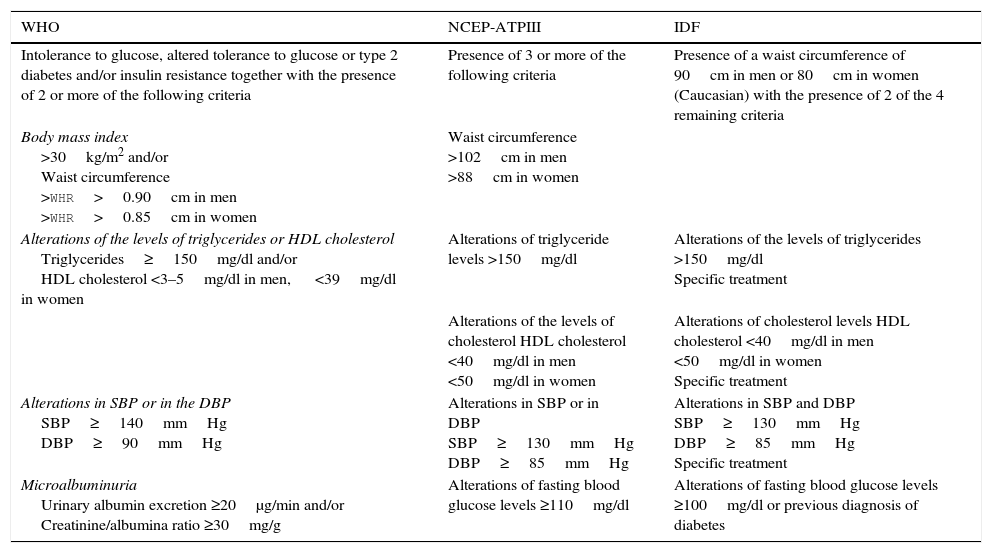Metabolic syndrome is a constellation of disorders that includes insulin resistance, central obesity, arterial hypertension and hyperlipidaemia. These disorders can have implications for the genitourinary apparatus.
ObjectivesTo conduct a review on the pathophysiological aspects that explain the relationship between metabolic syndrome and sexual dysfunction, lower urinary tract syndrome, prostate cancer and stone disease.
MethodsWe performed a qualitative, narrative literature review through a literature search on PubMed of articles published between 1997 and 2015, using the terms pathophysiology, metabolic syndrome, endothelial dysfunction, lipotoxicity, mitochondrial dysfunction, kidney stones, hypogonadism, erectile dysfunction, lower urinary tract syndrome and prostate cancer.
Synthesis of the evidenceMetabolic syndrome constitutes an established complex of symptoms, defined as the presence of insulin resistance, central obesity, hypertension and hyperlipidaemia.
Endothelial dysfunction secondary to lipotoxicity generates an inflammatory state, which involves renal cell metabolism, vascularization of the pelvis and androgen production. These facts explain the relationship between metabolic syndrome, nephrolithiasis, lower urinary tract syndrome, hypogonadism and erectile dysfunction in men.
ConclusionsStrategies such as proper diet, regular exercise, insulin treatment, testosterone-replacement therapy, therapy with antioxidants and free-radical inhibitors and urological treatments classically used for lower urinary tract syndrome have shown promising results in this syndrome.
El síndrome metabólico es una constelación de trastornos entre los que se incluyen la resistencia a la insulina, la obesidad central, la hipertensión arterial y la hiperlipidemia. Estas alteraciones pueden tener implicaciones sobre el aparato genitourinario.
ObjetivosEfectuar una revisión para describir los aspectos fisiopatológicos que explican la relación entre el síndrome metabólico y la disfunción sexual, el síndrome del tracto urinario inferior, el cáncer de próstata o la enfermedad litiásica.
MétodosSe realiza una revisión bibliográfica narrativa cualitativa mediante una búsqueda bibliográfica en PubMed de los artículos publicados entre 1997 y 2015, utilizando los términos fisiopatología, síndrome metabólico, disfunción endotelial, lipotoxicidad, disfunción mitocondrial, litiasis renal, hipogonadismo, disfunción eréctil, síndrome del tracto urinario inferior y cáncer de próstata.
Síntesis de la evidenciaEl síndrome metabólico constituye un complejo sintomático establecido y definido como la presencia de resistencia insulínica, obesidad central, hipertensión e hiperlipidemia.
La disfunción endotelial secundaria a la lipotoxicidad producida genera un estatus inflamatorio en el que se ven implicados el metabolismo celular renal, la vascularización de la pelvis o la producción de andrógenos. Estos hechos explican la relación entre el síndrome metabólico, la litiasis renal, el síndrome del tracto urinario inferior, el hipogonadismo y la disfunción eréctil del varón.
ConclusionesEstrategias como el cuidado de la alimentación, el ejercicio regular, el tratamiento con insulina, tratamientos sustitutivos con testosterona o antioxidantes e inhibidores de los radicales libres, así como los tratamientos urológicos clásicamente utilizados en el síndrome del tracto urinario inferior han demostrado resultados prometedores en este síndrome.







